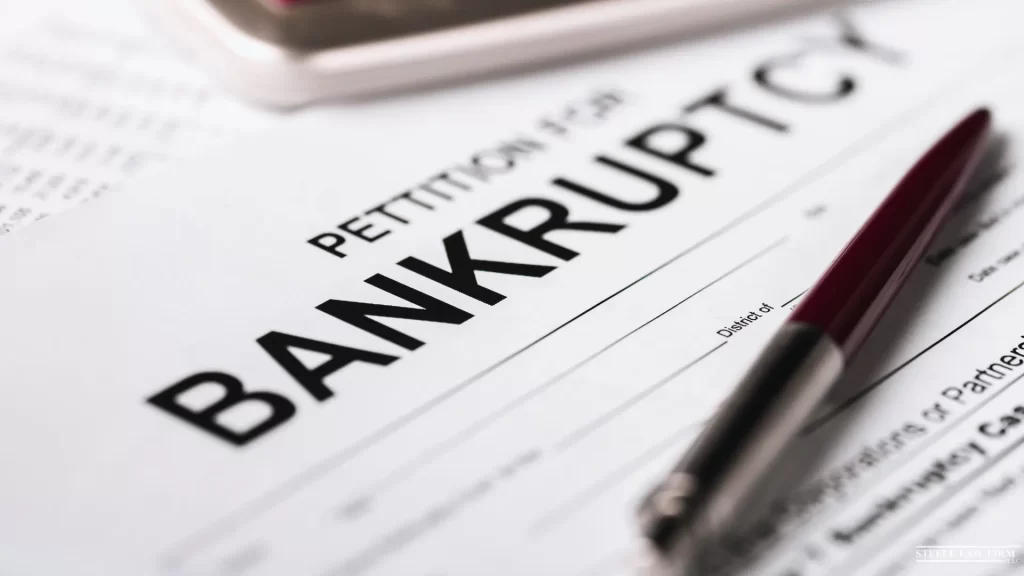During Chapter 13 bankruptcy, you are under a lot of stress. You may feel overwhelmed and concerned about the level of involvement the courts have in your finances. When it comes to your trustee, a few questions may come to mind about the role they play in your monetary matters. Does the trustee monitor your bank account in Chapter 13? If so, what can they see?
At Steele Law Firm, we know that there can be some misunderstandings and suspicion when it comes to your trustee. We have been helping the people of the DFW and North Texas for years, and are here to ease any anxieties you may have. Founder and owner, Lindsay D. Steele, was the former President of the Bankruptcy Law Section of the Tarrant County Bar Association. She has the experience and knowledge to get you through your Chapter 13 bankruptcy as smoothly as possible.

The question of what the trustee can see comes down to first understanding what your trustee’s role is in Chapter 13 proceedings. Your trustee will organize your meeting of creditors, a necessary step in the Chapter 13 process. Under oath, you will answer a series of questions your trustee asks about your case and will ensure that everything is accurate.
From that point on, you pay them your monthly installments, and they will be the one to distribute them across your creditors. They will loosely monitor your financial situation, making sure that you continue to be truthful and have no suspicious financial events.
Yes, but not closely. They have access to bank statements, and you will be submitting various paperwork such as pay stubs, but usually it will not extend beyond this. They do not have your passwords and cannot see the exact amount in the accounts.
Even if they did have complete access, a trustee has too much work to do to watch the day-to-day happenings of your bank account. For the 197,244 Chapter 13 cases filed in 2024, there were only 164 trustees nationwide. This means that each trustee has hundreds or thousands of cases that they are working on at once.
In most bankruptcy cases, you will not have a lot of dealings with your trustee. As long as you continue making payments, providing accurate information, and having a stable income, then there will be no need.
Understanding the trustee’s role in Chapter 13 bankruptcy is helpful when you are in the process of a bankruptcy. However, you are likely to still have plenty of other questions before starting your case or determining if this path is the right option for you and your unique financial status. Hiring a bankruptcy lawyer who can confidently answer all of your questions about bankruptcy laws is essential to a seamless process.
Your Arlington Chapter 13 bankruptcy lawyer can help navigate some of the confusing legal language and prevent any critical errors. They can help you prepare for the meeting of creditors and thoroughly examine all documents for any errors. Your lawyer can help throughout the multi-year process by providing any additional aid you may need to keep up with your repayment plan. A skilled bankruptcy attorney can help in many ways and be a great resource for every aspect of bankruptcy law.
A: No, your trustee does not have access to your accounts. They cannot log in or see the live bank balance. However, a crucial part of the Chapter 13 process is notifying your trustee about your financial situation and giving them regular bank statements, tax returns, and any income records. They should know your financial matters, but will not have your bank account passwords and information.
A: Due to the busy nature of the trustee position, you will most likely only speak directly with your trustee once. This will be the meeting of creditors at the beginning of your Chapter 13 bankruptcy process. The trustee will go through the information you provide and invite you to swear under oath that it is all truthful. After this, you may hear from the trustee’s office if there are any issues, but if it all goes smoothly, there will be minimal contact going forward.
A: Filing for Chapter 13 bankruptcy should not affect or close your accounts. Instead, the statements from it will be examined by your trustee. How you use your account may be different. Depositing or transferring large sums of money may seem suspicious to the trustee, who may initiate a deeper investigation. You should also refrain from opening any new bank accounts at all, or wait for feedback from your bankruptcy attorney and court approval.
A: Yes, but in a loose sense. Your trustee will review all bank statements and balances you provide at the beginning of your Chapter 13. During your bankruptcy case, they may ask for updated records if you fall behind on payments, have an income change, or hear of any suspicious behavior such as sudden large deposits or withdrawals. In most bankruptcy cases, the courts and trustee will only monitor your account at fixed points throughout the repayment period.
At Steele Law Firm, PLLC, we understand that you may have many more questions about the job of your trustee and what lies ahead in your Chapter 13 case. We look forward to hearing your story and working with you right away to help you understand the ins and outs of bankruptcy law. Contact us today for an initial consultation, and we can begin to discuss your options.
You can also visit our Fort Worth office, located on Lafayette Avenue near the Fort Worth Botanic Garden and the Fort Worth Museum of Science and History.




